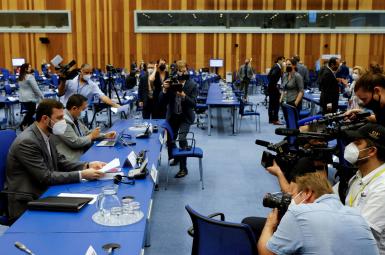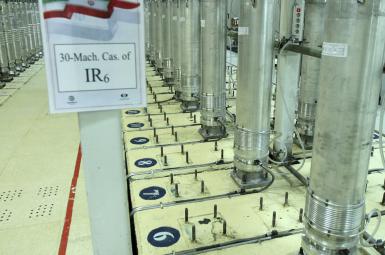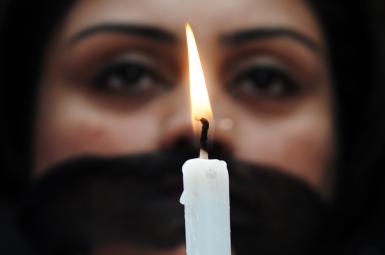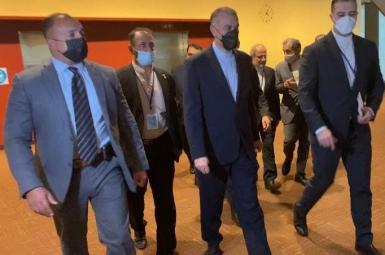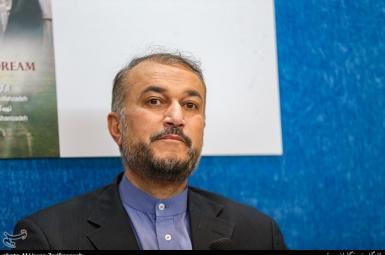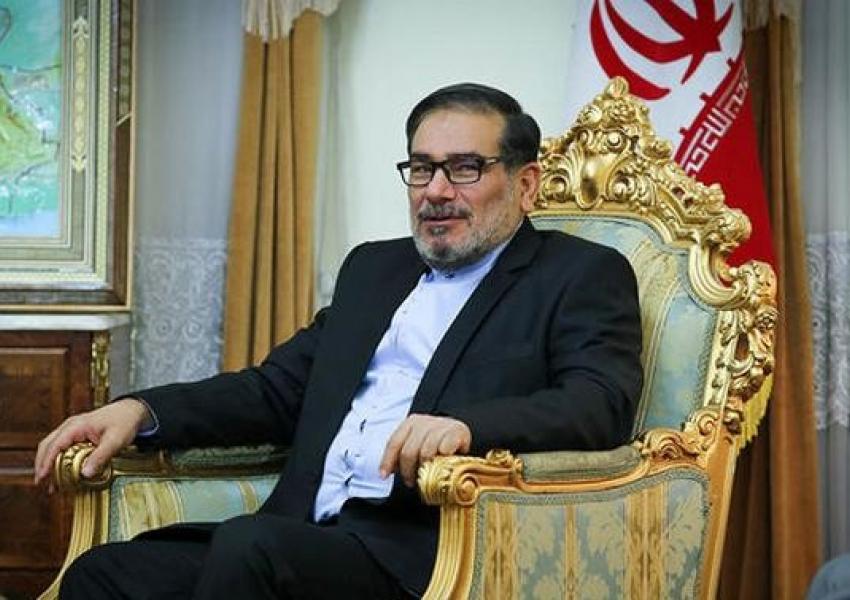
Iran’s Management Of Nuclear Talks May Shift to Security Council
In a commentary Tuesday, the Javan newspaper, which often reflects thinking in senior parts of the Revolutionary Guards (IRGC), argued that President Ebrahim Raisi (Raeesi) should transfer Iran’s management of nuclear negotiations with world powers to the Supreme National Security Council (SNSC).
Conduct of talks was moved from the SNSC to the foreign ministry after Hassan Rouhani became president in 2013. Earlier Iran’s negotiating teams were led by SNSC secretaries Saeed Jalili (2007-2013), Ali Larijani (2005-2007), and before 2005 Rouhani. Mohammad Javad Zarif as foreign minister led the Iranian team that negotiated the 2015 nuclear deal with world powers, while recent talks in Vienna have been led by Abbas Araghchi, a deputy foreign minister, with Zarif sanctioned by the United States since 2019.
Javan asserted that the foreign ministry had over eight years evolved into a “political faction” and used the talks to secure its interests at the expense of national security, allowing "the enemy to score points with empty promises of the harvest." The newspaper said in the future Raisi would remove associates of Zarif and a "distinct group" would oversee negotiations with world powers.
A new team of negotiators, Javan predicted, would abandon Rouhani's "delusions" of normalizing relations with Washington and his hopes of expanding trade with the US. Washington would no longer expect to "derail the nuclear and missiles industries without offering anything in return” – a reference to the growing sense in Tehran that the US is attaching new conditions for its return to the 2015 nuclear deal, the JCPOA (Joint Comprehensive Plan of Action), as promised by US President Joe Biden. The Vienna talks to revive the JCPOA, from which Donald Trump withdrew in 2018 before imposing sanctions, are currently on hold awaiting Iran’s presidential transition.
Speaking to Khabar Online Tuesday, the spokesman of the conservative Motalefeh Party, Hamidreza Taraghi, also said the SNSC should again take charge of nuclear talks, which he said faced a challenge given "the western countries' refusal to honor their own commitments." Sobh-e Sadegh, the Revolutionary Guards' weekly publication, as early as last November, with an expectation of talks encouraged by Biden’s election, had argued that the SNSC should replace the foreign ministry.
The SNSC, which sets Iran’s broad security strategy, has around 20 members, including the heads of the executive, judiciary and parliament, and high-ranking military officials as well as two representatives of the supreme leader – currently Ali Shamkhani, the SNSC secretary, and Saeed Jalili.
In his last days in office, Rouhani suggested Iran had missed opportunities over reviving the JCPOA and lifting US sanctions due to the legislation passed by parliament December, after the killing of Iranian nuclear scientist Mohsen Fakhrizadeh, requiring the expansion of Iran's nuclear program.

